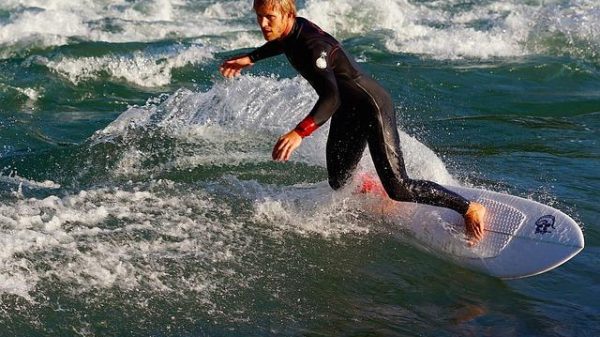In recent years, the rise of extreme sports has captivated audiences worldwide, drawing young athletes into a realm defined by adrenaline, skill, and risk. As these sports gain mainstream appeal, the involvement of corporate sponsors has surged, introducing a complex ethical landscape that demands careful scrutiny. This article delves into the multifaceted ethical considerations of sponsoring young athletes in extreme sports, examining the balance between opportunity and exploitation. With the stakes as high as the vertiginous heights these athletes conquer, it is imperative to dissect the motivations and responsibilities of sponsors, the impact on the athletes’ development and well-being, and the broader societal implications. By analyzing these dimensions, we aim to provide a comprehensive understanding of the ethical challenges and potential pathways to ensuring that sponsorships foster not only athletic excellence but also the holistic growth and safety of young talents navigating the perilous world of extreme sports.
Evaluating the Moral Responsibility of Sponsors in Youth Extreme Sports
In the realm of youth extreme sports, the role of sponsors transcends mere financial support, delving into the ethical considerations of their influence on young athletes. Sponsors wield considerable power in shaping the trajectories of these athletes, whose ages often make them vulnerable to external pressures. The question arises: are sponsors morally obligated to ensure the well-being of these young individuals beyond the competitive arena?
- Safety Protocols: Are sponsors responsible for ensuring that athletes have access to top-tier safety equipment and training?
- Pressure and Expectations: How do sponsorship deals impact the mental health of young athletes, who may feel pressured to perform at high levels consistently?
- Informed Consent: Do sponsors ensure that both the athletes and their guardians are fully aware of the risks involved?
- Development vs. Exploitation: Is there a balance between nurturing talent and exploiting youthful ambition for commercial gain?
Ethical responsibility extends to the creation of a supportive environment that prioritizes the holistic development of young athletes. It is imperative for sponsors to recognize their influential role and adopt policies that safeguard the physical and mental well-being of these promising talents. This involves not only fostering a culture of safety and integrity but also actively participating in dialogues that address the broader implications of their sponsorships.

Balancing Risk and Reward: Ethical Considerations for Sponsorship Agreements
When sponsoring young athletes in extreme sports, companies must carefully weigh the potential benefits against the ethical implications of their involvement. Extreme sports, by nature, involve a higher degree of risk, which can be particularly concerning when young, impressionable athletes are involved. Sponsors should ensure that their agreements promote not just performance, but also the safety and well-being of these athletes. This includes providing access to proper training, equipment, and medical support. Moreover, sponsors should consider the psychological impact of their sponsorship on young athletes, who may feel pressured to take unnecessary risks to fulfill contractual obligations or meet perceived expectations.
Ethical sponsorship agreements should encompass several key considerations:
- Safety Standards: Ensure adherence to the highest safety standards and provide resources for comprehensive risk management.
- Transparency: Clearly outline the terms of the sponsorship, including any performance expectations and potential risks.
- Support Systems: Offer support that goes beyond financial backing, such as mentorship programs and psychological counseling.
- Age-Appropriate Engagement: Tailor sponsorship activities to be suitable for the athlete’s age and maturity level, avoiding undue pressure.
By addressing these considerations, sponsors can create partnerships that are not only lucrative but also ethical and sustainable, ensuring that young athletes can thrive both on and off the field.

Ensuring Safety and Development: Best Practices for Supporting Young Athletes
When sponsoring young athletes in extreme sports, it is crucial to prioritize both their safety and development. Coaches and sponsors should implement best practices to create an environment that fosters growth while minimizing risks. Key strategies include:
- Comprehensive Training Programs: Develop and maintain training regimens that focus on technique, physical conditioning, and mental resilience. Ensure that young athletes receive guidance from experienced professionals to hone their skills safely.
- Regular Health Assessments: Schedule frequent medical evaluations to monitor the physical and psychological health of young athletes. Early detection of potential issues can prevent long-term injuries and promote overall well-being.
- Age-Appropriate Challenges: Tailor challenges and competitions to suit the developmental stage of the athlete. Avoid pushing them into high-stakes environments that may exceed their current capabilities.
Furthermore, maintaining open communication with athletes and their guardians is essential. Transparency in goals and expectations helps build trust and ensures that all parties are aligned in prioritizing the athlete’s best interests. By balancing ambition with caution, sponsors can nurture talent while safeguarding the young athletes’ futures in extreme sports.

Promoting Long-term Well-being: Recommendations for Ethical Sponsorship Strategies
When it comes to supporting young athletes in extreme sports, ethical sponsorship strategies are essential to ensure their long-term well-being. Sponsors should prioritize safety and health, implementing measures that protect athletes from undue risks. This includes promoting the use of appropriate safety gear and investing in research that improves sport-specific safety standards. Additionally, sponsors should avoid placing undue pressure on young athletes to perform beyond their limits, which can lead to both physical and psychological harm.
Furthermore, ethical sponsorship involves fostering a balanced development for these athletes. Sponsors should encourage a holistic approach that emphasizes education, mental health, and personal growth alongside athletic achievement. This can be achieved by providing resources such as:
- Access to educational programs and tutoring services.
- Mental health support and counseling.
- Workshops on life skills and career planning beyond sports.
By adopting these strategies, sponsors not only contribute to the athletes’ current success but also ensure their sustainable development in the future.










